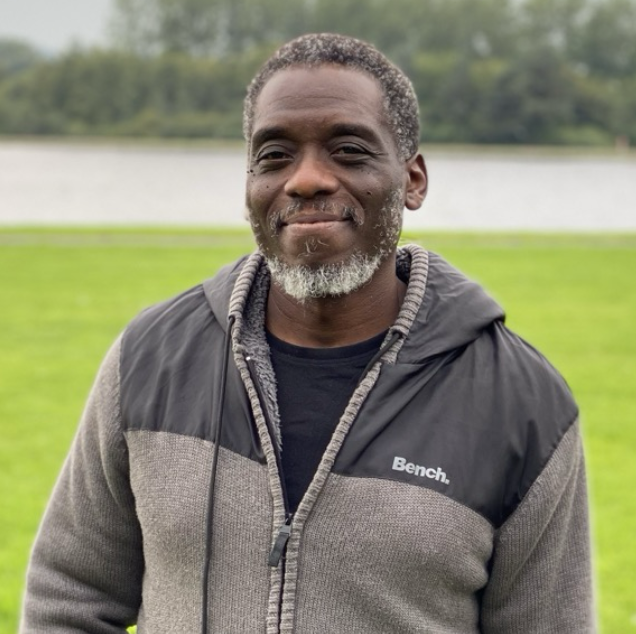He had never known the privilege of seeing what the sun looked like even though he felt the warmth. He knew the relief of having a drink of water after enduring the heat of the sun, but he never knew what it looked like to the eyes. He heard people talking about colours but he did not know what colours looked like. He was born into a family and knew them all by name and by touch but had never seen his parents or siblings ever since he was born.
Having no sight meant that he could not work and not working meant that he would have no means to feed or cloth himself. Only one option was open to him if he was to survive; rely on the sympathy of people to give him alms. Thankfully his was a religious country where giving of alms is an important part of their belief, so he was guaranteed to have enough to feed himself on a daily basis.
He probably heard people wondering about his condition, debating about the cause of his predicament. They all concluded that he was suffering the effects of sin. What the discussants could not agree upon was whether the blind man was suffering the effect of the sin of his parents or his own.
Those who believed that it was the sin of his parents would have argued that since he was blind from birth, it could not have been his own sins; it had to be his parents. Others who knew the parents well, would have argued that the parents were very religious people and therefore could not have sinned so much as to cause blindness to their child.
The debate raged on until someone decided to bring the matter to the Wise One. "Teacher, " he said, "Why was this man born blind? Was it because of his own sins or his parents' sins?" (John 9:2)
His answer blew away all the views held by the various parties to the debate. Imagine their shock when they heard him reply, "It was not because of his sins or his parents' sins" (John 9:3) "What? How is that possible?" They wondered. Then the Lord continued, "This happened so the power of God could be seen in him".
Some of those who overheard him chuckled while others smiled patronisingly. Some talking among themselves, shaking their heads, 'I suspected that something was wrong with this man, now I know he has lost it completely!"
The next thing that happened wiped the smiles off their faces. They became curious as they saw Jesus spit on the ground, mixed his spit with sand and rubbed it on the man's eyes. He then instructed him to go wash himself in the pool of Siloam. As soon as the man did so, he got the shock of his life. He could see! He jumped out of the pool and must have been a sight, jumping up and down, looking at people and saying, 'I can see you! And you too!'
He soon attracted a crowd of people including his neighbours and everyone who had known him as a blind beggar. There was confusion and disbelief as they saw someone they had always been known to be blind, now able to see and identify people and objects. They asked him who he was and he kept telling them, 'I am the same person!
News soon got to the religious leaders. They summoned the man and began to interrogate him. He told them exactly what happened and how he was healed.
Not satisfied, his parents were summoned in order to verify the authenticity of his claim and to establish if he was even blind from birth. The parents, being careful not to be branded as blasphemers, carefully answered the religious leaders, ‘We know this is our son and that he was born blind, but we don’t know how he can see or who healed him. Ask him. He is old enough to speak for himself.” (John 9:20-21)
Now, one of the skills of a good interrogator is the ability to ask a respondent the same question in different ways. This is to establish any variation in the response in order to establish if the person is speaking the truth or not. The Pharisees once again called the blind man and first ‘educated’ him about Jesus being a sinner and could not have performed such a miracle.
Then they asked him again, ‘How did he heal you?’ At this point, the blind man had become exasperated and obviously had enough of their interrogation, ‘Look! I told you once! Didn’t you listen?! Why do you want to hear it again? Do you want to become his disciples too?’ (John 9:27)
This drew the anger of the leaders; they cursed and subsequently threw him out of the temple. He eventually met Jesus again and from them on, he became a disciple.
Is anyone questioning your faith today? Draw a lesson from this blind man. He did not care about the theology of what Jesus did, all he knew was that, ‘Once I was blind, but now I see!’
This should be the declaration of every Christian whenever our faith is being questioned. We do not need to argue or debate. All we need to do is show the critics what the Lord has done for us and leave the rest to Him.
You may be going through a situation today and people are speculating about the cause of your problem. Do not be discouraged! Hold on to the horns of the altar. Look unto Jesus, the author and finisher of your faith. You might be going through that situation so that when the turnaround comes, God will be glorified.
